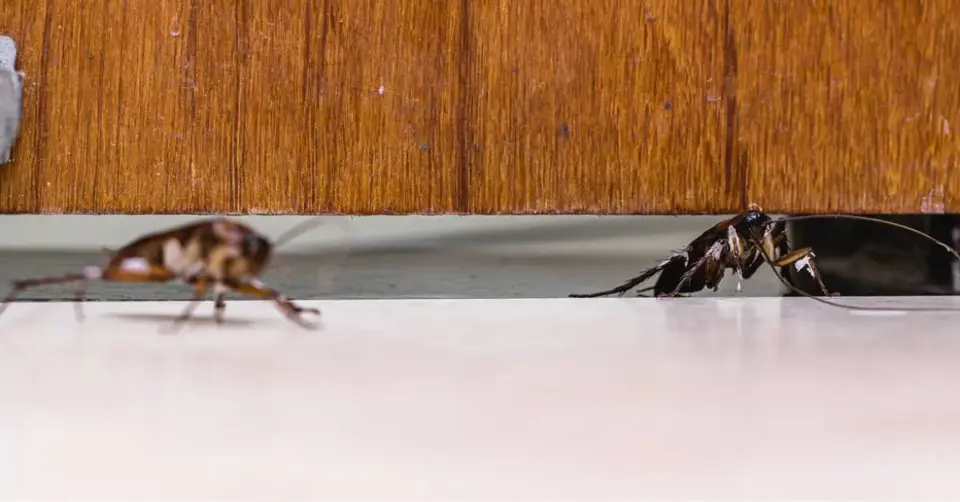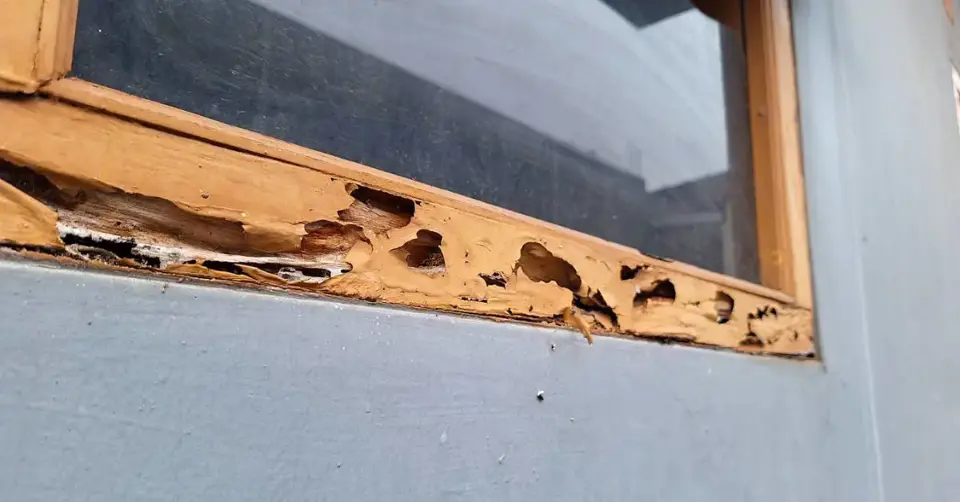

The Key To Total Fly Control For Houston Homes
The occasional fly might just be a nuisance in your Houston home, but these pests can cause problems if they infest your home in large numbers. From fruit flies to cluster flies, there’s a lot to know about fly control in Houston.
Here’s what Houston homeowners should know about the types of house flies, how they can be dangerous, how to prevent them, and how pest control in Houston can help with a fly infestation.
Types Of Flies That Commonly Invade Houston Homes
Can you identify those tiny flies in your house or baby fruit flies hanging around? You may not realize it, but there are several different types of flies you can encounter in Houston, and the most common types include:
- House flies: Perhaps the most common kind of fly that people picture when they think of this pest, house flies can eat just about anything, but their preference for human food is why they’re often in homes.
- Fruit flies: Another common kind of fly you may already be familiar with, fruit flies are often spotted around rotting or decaying fruits and vegetables as well as other rotting foods.
- Cluster flies: These flies get their name for the way they like to cluster together in groups, especially during colder months. While they don’t pose a threat and aren’t known to carry any diseases, these flies leave excrement stains on windows and are a nuisance in homes.
- Phorid flies: With a humpbacked physical appearance, phorid flies are especially unsanitary and can breed and thrive in almost any environment if there’s moisture.
- Drain flies: With a hairy body and wings, drain flies may be a little easier to recognize, and they can become a big problem if they start breeding inside your drain system.
You may see certain types of flies breeding throughout the year in your home, but they’re especially active during the warmer months. As temperatures increase, the number of flies in your home may increase too – especially if the conditions are right for them to thrive.
All The Ways Flies In The House Can Be Dangerous
We’ll get into more detail below, but here’s a quick overview of how dangerous flies can be. The number one reason you don’t want them in your home – besides being a nuisance – is their capability to spread bacteria.
Many flies, including the common house fly or fruit fly, can be vectors for disease. Flies aren’t picky eaters, and their diet of excrement, rotting food, and spoiled meat ensures that they pick up plenty of bacteria and pathogens during their lifespan.
Some of the most common bacteria and germs that flies can spread include:
- E. coli
- Cholera
- Typhoid fever
- Shigellosis
Not only do germs cling to a fly’s body, but when they land and feed, flies can sometimes defecate and vomit – which is another way they can spread bacteria to you. If a disease-carrying fly lands on your food, it can leave these germs behind and put you at risk in only a matter of seconds.
Do house flies or other types of flies bite? Most flies won’t bite or sting, especially the ones that are prone to hanging around your house. The shape of the mouth on a housefly, for instance, prevents it from biting, and there is no way for it to sting you.
However, one fly is prone to biting both people and livestock in Texas, and that’s the horse fly. Like mosquitoes, male horse flies feed on nectar and plants while female horse flies snack on blood. And since their mouthparts tear at the skin rather than suck the blood like a mosquito, a horse fly bite can be pretty painful. Some of the symptoms of a horse fly bite include swelling, redness, and pain that lasts for several hours.
The good news is that most horse fly bites don’t require medical attention unless you’re allergic. Over-the-counter ointments and treatments should be enough to treat the bite, but you should go to the doctor if the bite comes infected.
Five Easy And Effective Fly Prevention Tips
As unsanitary as flies can be, are there ways to prevent them from getting inside your home? While it may be normal to see the occasional fly or two, here’s how to ensure you don’t attract too many flies into your Columbus home:
- Don’t Leave Garbage Cans Without Lids: Keep a lid on your garbage cans. Rotting or spoiled food attracts flies, so you’ll want to make sure you’re sealing up your garbage can and regularly emptying your trash when it gets full. This includes both indoor and outdoor garbage cans. While indoor garbage cans will draw flies into your home, outdoor garbage cans too. Flies may start hovering around your outdoor cans, but if they suspect there’s food inside, they’ll eventually wander inside. You’ll also want to ensure there is no leaking or holes in the bags you use for your trash. Leaking bags can also draw flies in since it gives them a way to access the food.
- Don’t Leave Your Leftovers Out: Don’t leave any leftovers out. Spoiled or leftover food that’s left on your counters instead of your garbage can also draw flies in, so it’s always a good idea to make sure you avoid leaving any food items out. Almost anything edible, including sweets, meats, fruit, and vegetables, will draw most flies in. It’s a good rule of thumb to use airtight containers or packages to store food products. Keep them in the fridge or the cabinet. Along the same lines, you’ll also want to avoid leaving dirty dishes in the sink too long. Plates with any food remnants on them could attract house, fruit, or drain flies. Generally, it’s a good idea to deal with dirty dishes within a few hours and not leave them sitting overnight.
- Don’t Allow Rotting Food To Sit Out: Avoid leaving fermenting food around. Many flies, especially fruit flies, are drawn to fruit or veggies that are a little too ripe – keep any fruits or vegetables in the fridge instead of your counter. If you do notice that your fruits and vegetables are starting to rot before you’ve gotten to use them, you should dispose of them immediately. Leaving them to rot could draw plenty of flies in, both to your fridge and other places in your house. If you do put rotting or fermenting foods in the trash, make sure you cover the can with a lid or empty it into a dumpster.
- Pick Up After Your Pets: Pick up after your pets. A lot of pet feces or manure can draw flies into your yard, so it’s generally a good idea to clean up after your pets when you bring them outside. You’ll also want to carefully look after litter boxes or any droppings that may be happening inside the home. Make sure you’re cleaning the litter box on a regular basis, and if your dogs are using puppy pads, you’ll want to dispose of the pads in a timely manner.
- Clean Your Drains Regularly: Clean your drains to prevent drain flies. The scum that builds up on the bottom of drains is appetizing to certain flies, like drain flies, so you’ll want to try and avoid any scum build-up. This is where drain flies may begin breeding in your drains, and once they start, it’ll be hard to get them out on your own. Garbage disposals can also be a prime spot for drain flies to hang around.
These five tips can help lessen your risk of attracting flies, but if they do end up in your home, you'll need to take further action.
The Most Effective Fly Control Solution For Houston Homes
Along with using the tips above to avoid attracting flies, what do you do if you’ve already got a fly problem? In that case, it may be time to give us a call at All-Safe Pest & Termite. With years of experience serving Houston homes, we’ve dealt with fly infestations of every size and kind. When you need to get rid of fruit flies in your house or or deal with garbage flies, there’s no better place to call.
With most of the pests we treat, including flies, our services follow a three-step plan: inspection, treatment, and follow-up services. We’ll start by checking the extent of how serious the fly infestation is, coming up with a custom treatment plan, and then following up with additional services to ensure your fly problem doesn’t come back.
We’ll handle the professional treatments, but as a homeowner, proper food and trash storage can go a long way towards preventing future fly issues.
If you’re tired of swatting away at flies in your home or on your property, contact us today at All-Safe Pest & Termite to learn more about how our fly control services work.

How We Can Help You Our Services





.jpg.2601291047352.webp)
